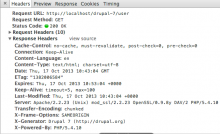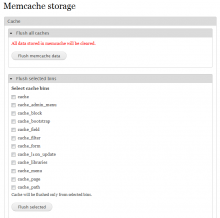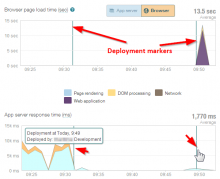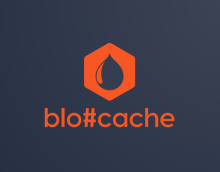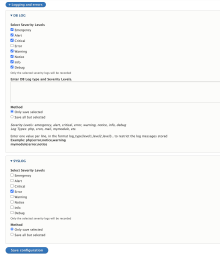Add functionality and customize your Drupal application with thousands of projects contributed by our amazing community.
A module is code that extends Drupal's by altering existing functionality or adding new features. You can use modules contributed by others or create your own. Learn more about creating and using Drupal modules.
The fine granularity of control over cache tables and function makes this module the ultimate tool to clear the Drupal caches.
This modules provides RabbitMQ integration with Drupal's queuing system. The module requires the php-amqplib library to run.
Permits to load some blocks by additional AJAX request after loading the whole cached page when the page is viewed by anonymous user. It is suitable for sites which are mostly static, and the page caching for anonymous users is a great benefit, but there are some pieces of information that have to be dynamic.
Utility module that provides an alternative mean of rebuilding the Content Access table.
The Speedy module is designed to help speed up front end performance in a site.
The Speedy module provides minified versions of core JavaScript files that are not already minified. For example, a minified version of drupal.js is provided while jquery.js (already minified) is not.
Embeds a critical CSS file into a page's HTML head, and loads the rest of non-critical CSS asynchronously.
Overview
This module allows to set HTTP response headers (both standard and non-standard) on pages by various visibility rule settings. Currently the headers can be set by path, content type and user role.
Use cases
case 1: Set 'Cache-Control' or 'Expires' header to set/reset cache behaviour of browser/cache servers.
case 2: Set 'X-Frame-Options' to restrict your pages rendering on a frame.
case 3: Set 'WWW-Authenticate' to set authentication to pages.
Features
- Configure list of allowed headers
- Exclude non-functional pages (e.g. Admin pages) globally
- Drush extension to cover all functionality
- Page level header rule caching
- Export/import (using Ctool) header rules from an inc file (MODULE.http_response_headers_default_rule.inc) or hook implementation (hook_http_response_headers_default_rule())
Known problems
- The calculation for certain headers (e.g. Expires) happens internally and end user may not aware of it. So entering 600 in expires header value change to ISO date format of 5 minutes from current time.
- Doesn't work well with Drupal page cache
Keep Frontend DRY; sprinkle it with Magic

At times we need to cache some values which are not related to Drupal config or data but are coming from external systems and which don't really need to be deleted when clearing (rebuilding) Drupal
Are your views returning a 200 when it should return a 404? Views404 is the answer! This is very helpful for any caching layer and it will help SEO.
Introduction
This module allows Drupal cache bins to be stored in files.
Comparison with other caching modules
memcache is the closest caching module. File Cache can be configured to use a memory based filesystem (e.g. /dev/shm in Debian) which is very close to what memcache does. File Cache can use network filesystems and this
is another use case where memcache is traditionally used.
apc can be used for cache bins too. If it's used for that purpose,
it's usually only for some of the critical cache bins like cache and
cache_bootstrap.
boost generates caches of pages that are directly served by web
server. File Cache can plug in regular Drupal page caching and provide
very fast page caching but this still needs a bit of PHP to be
executed. Database access can be avoided altogether though. See
$conf['filecache_fast_pagecache'] in README.txt.
Relation with cacherouter and fastpath_fscache modules for Drupal 6.
Feedback
#D8CX: I pledge that Memcache Storage will have a full Drupal 8 release on the day that Drupal 8 is released.
Memcache Storage module provides integration between Drupal and Memcached daemon using PECL memcache or PECL memcached extension.
Installation & Configuration
For information about installation and configuration please see the documentation.
Features
This module is an alternative to Memcache API and Integration module focused on speed. See list of its features:
- You may move all cache to the memory.
- You may move users' sessions to the memory.
- You may move lock system to the memory.
- Module supports intergration with ngx_http_memcached module. Nginx may get cached page directly from memcached pool and avoid passing requests to the heavy backends!
Alter cache settings per block. Cache settings per block are now set in code, but if you don't like the default - usually none - you can now easily change this.
403 to 404 is a simple module that emits a 404 error when a user tries to access a page that they don't have permission to view.
Why might I need Alternative Stream Wrappers?
New Relic is an excellent tool for improving and monitoring your Drupal installation. Visit http://newrelic.com for information and the ability to sign up for a free trial of their Pro service. Visit https://docs.newrelic.com/docs/apm/agents/php-agent/installation/php-age... for instructions on how to install the PHP extension and the reporting daemon.
Check out Dries' post about New Relic RPM here: http://buytaert.net/playing-with-new-relic-on-acquia-hosting.
Disclaimer
This module is neither supported nor endorsed by New Relic. Its purpose is to enhance New Relic integration with Drupal and bring visibility of your website's performance into Drupal. It also allows you to perform some tasks pertaining to New Relic's monitoring of your site from within your Drupal website.
Features at a Glance
- Allow cron to be marked as a background task (background task data does not directly affect your site's reporting and alerts)
- Allow any URL to be marked as a background task
- Allow any URL to be ignored by APM (say if you are testing at a certain URL and don't want any actions there mucking up your stats)
- Allow the exclusive tracking of only specific URLs
- Pulling in basic reporting into Drupal
Summary: this module allows website builders to change the block cache metadata through the administrative block interface (see attached images).
Http Client Manager introduces a new Guzzle based plugin which allows you to manage HTTP clients using Guzzle Service Descriptions via YAML, JSON or PHP files, in
Tracer API replaces some of the Core's services with a traceable version.
This module doesn't do anything by this own, install it only if you're using a module that requires it.
The Metatag widget can affect content editing performance especially when Schema Metatag is enabled.
This module provides a plugin type for preprocessing. The manager scans for implementations and executes the preprocessors when they meet the given `hook`
Summary:
Are you trying to store only the log messages that are required? Either it is Warnings, Notice, Php, Debug, etc.
Pages
 Support for Drupal 7 is ending on 5 January 2025—it’s time to migrate to Drupal 10! Learn about the many benefits of Drupal 10 and find migration tools in our resource center.
Support for Drupal 7 is ending on 5 January 2025—it’s time to migrate to Drupal 10! Learn about the many benefits of Drupal 10 and find migration tools in our resource center.

